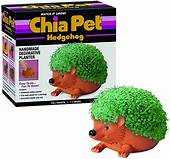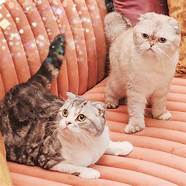Can You Have Pigs as Pets?
Pigs are intelligent and social animals that have been praised for their friendly and playful personalities. While pigs are traditionally farmed for food, some people keep them as pets. Although pigs can be rewarding pets, it is important to research the commitment and care involved before bringing one home.

Considerations Before Getting a Pig as a Pet
1. Sociability: Pigs are highly social animals and need daily interaction with their owners or other pigs. They crave attention, and failure to provide it can lead to boredom, loneliness, and destructive behavior.
2. Housing and Space: Pigs need a lot of space to roam and play. They should have access to both indoor and outdoor areas with adequate protection from the elements. A pig's housing should be cleaned regularly to prevent odor and maintain hygiene.
3. Diet and Nutrition: Pigs have specific dietary requirements, including a balanced mix of protein, carbohydrates, and vitamins. It is vital to provide a diverse diet that meets their nutritional needs and prevents obesity and other health issues.
Benefits of Having a Pig as a Pet
1. Intelligence: Pigs are highly intelligent animals capable of learning tricks, solving puzzles, and recognizing their names. They are curious and playful, providing hours of entertainment and companionship.
2. Personality: Pigs have charming and unique personalities. They can be affectionate, loyal, and eager to please. With proper socialization and training, pigs can form strong bonds with their owners.
3. Farm Experience: Keeping a pet pig can provide valuable insights into the world of farming and animal care. It can teach children responsibility, empathy, and respect for animals.
Challenges of Keeping a Pig as a Pet
1. Size: Pigs can grow to substantial sizes, requiring ample space and proper facilities to accommodate their needs. Mini pigs, which are often marketed as more manageable, may still grow larger than expected and need adequate care.
2. Smell: Pigs can have a strong odor, especially if their housing is not cleaned regularly. Regular grooming, bathing, and outdoor access can help minimize the smell.
3. Vocalization: Pigs are vocal animals that communicate through grunts, squeals, and oinks. While not overly vocal, their sounds can be loud and disruptive, especially in urban or densely populated areas.
In conclusion, while pigs can make affectionate and entertaining pets, they require a significant commitment and lifestyle adjustment. Before getting a pet pig, thoroughly research the breed, its needs, and the responsibilities involved to ensure a happy and fulfilling life for both the pig and the owner.Declaration: All article resources on this website, unless otherwise specified or labeled, are collected from online resources. If the content on this website infringes on the legitimate rights and interests of the original author, you can contact this website to delete it.





